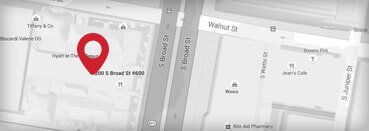When do you really start or stop working? For many people, the lines are blurred. Is it during your drive to work while you’re going over the last minute details of a presentation in your head, that last phone call to a client on your cell phone during the drive home, or when you actually step foot in the building? In many cases if you are in an accident before you actually step foot in your employer’s building or at least out of the parking lot onto the sidewalk, it will not be considered work related for purposes of workers’ compensation. The same is true for injuries that take place once you’ve left the workplace.
Why does this matter? If your accident is covered under workers’ compensation, 100% of your authorized medical treatment will be covered, including co-pays. You will also be paid temporary disability benefits tax free for missed time from work at a higher rate than State Temporary Disability Benefits or many private short term disability plans. If you are involved in a serious accident, your medical bills could exceed the coverage of your auto insurance – there is no limit to the insurance carrier’s medical liability in a workers’ compensation claim. This is not an issue of suing your employer, with very few exceptions, employer’s in New Jersey are immune from lawsuits by injured workers – it is about knowing your statutory rights as an employee in this state.
Injuries that result from an accident are deemed work related if they arise out of and in the course of employment under the New Jersey Worker’s Compensation statute. Exactly when an employee is “in the course of employment” has been further interpreted by the courts in New Jersey. The main issues is control.
Accidents which occur on the way to or from work are covered under what is commonly referred to as the “going and coming” rule. The actual act of driving to or from the office is not considered a benefit to the employer, so until a worker is performing tasks of direct benefit to the employer or under the employer’s physical control, an accident is not work related. The statute states that employment commences when an employee arrives at the employer’s place of employment to report for work and ends when the employee leaves the workplace. Basically, until you are in your employer’s control, anything that happens to you is not covered by workers’ compensation insurance.
There are exceptions to the “going and coming” rule. When an employee is required to be away from the primary workplace by his or her employer or if actually engaged in the direct performance of employment duties, this is considered a “special mission”. Paid travel time and use of an employer authorized vehicle is work related. If employees have designated parking spots or the employer owns the parking lot, employment generally starts when you step out of the car. However if there is a general parking lot, not owned or controlled by your employer, employment doesn’t start until you step into your employer’s building or a sidewalk under the control of your employer. Travel to meet with clients away from the office is also considered work related.
Technology has added a new dimension to this issue. If you are engaged in a cell phone call with a client on the way to work or discussing a project with a fellow employee on your drive home, and are involved in a motor vehicle accident, it should be covered by workers’ compensation – even if you’re on your way to or from the office. Workers’ compensation is a no-fault system, so it doesn’t matter if you’re wearing that hands free head set that never seems to work or not. In this situation, you would be directly performing your job and entitled to workers compensation benefits.
If you have been injured outside the workplace, but it is connected to your job, you may be entitled to workers’ compensation benefits. These benefits include medical treatment, temporary benefits while out of work, and in the case of a permanent injury, a dollar award based on the extent of the impairment.








